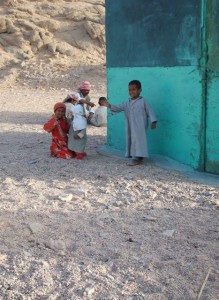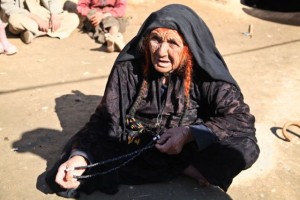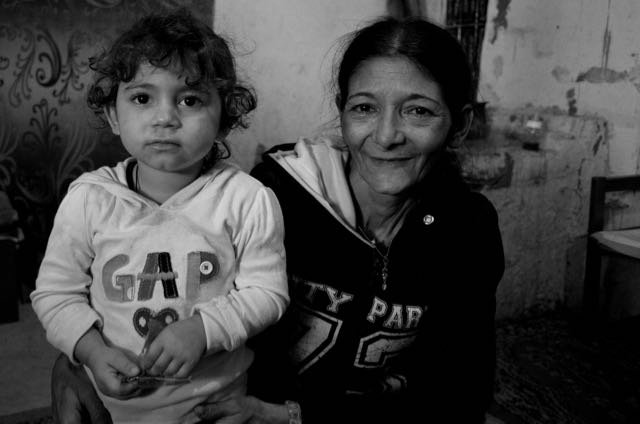 Three years ago I began a journey through the Bible that would take me through its entirety in depth over the span of five years (which is now actually looking to be six). I came up with a plan of study that would ensure that I spent time all over the Bible instead of just focusing on what had become my favorite parts. The result of this study has been life-transforming. It has continually confronted areas of my life and my understanding of God that have been unchallenged. Paul writes to Timothy in his second letter this familiar statement, “All Scripture is inspired by God and profitable for teaching, for reproof, for correction, for training in righteousness; so that the man of God may be adequate, equipped for every good work.”
Three years ago I began a journey through the Bible that would take me through its entirety in depth over the span of five years (which is now actually looking to be six). I came up with a plan of study that would ensure that I spent time all over the Bible instead of just focusing on what had become my favorite parts. The result of this study has been life-transforming. It has continually confronted areas of my life and my understanding of God that have been unchallenged. Paul writes to Timothy in his second letter this familiar statement, “All Scripture is inspired by God and profitable for teaching, for reproof, for correction, for training in righteousness; so that the man of God may be adequate, equipped for every good work.”
We all have our favorite verses, our favorite topics and our favorite soap boxes. The problem is that I can become content with getting to a point in my life where I feel that I sufficiently know and understand the Bible, and that I know and understand God Himself at a deep enough level. Then I slow down from my once zealous pursuit of studying through the whole of Scriptures to continue to know Him more deeply and be confronted by Him; content on being an expert on my pet topics while remaining shallow in numerous other areas.
 Wayne Grudem at the outset of his Systematic Theology argues that each one of us “does” systematic theology without realizing it. We say things like, “Throughout the Bible God is always…” Or “The Bible teaches that…” and then we fill in those blanks with some action on God’s part or a topic on the Bible’s part that we see as general truths. This is not a bad thing (I am about to do it in this very blog); it is actually very helpful and necessary. However, if we are not careful we can become so content with our own systems that we neglect to keep studying the Bible and allowing those systems be confronted by Scripture itself.
Wayne Grudem at the outset of his Systematic Theology argues that each one of us “does” systematic theology without realizing it. We say things like, “Throughout the Bible God is always…” Or “The Bible teaches that…” and then we fill in those blanks with some action on God’s part or a topic on the Bible’s part that we see as general truths. This is not a bad thing (I am about to do it in this very blog); it is actually very helpful and necessary. However, if we are not careful we can become so content with our own systems that we neglect to keep studying the Bible and allowing those systems be confronted by Scripture itself.
So we systematize, summarize, synthesize, generalize, emphasize (sometime over-emphasize, sometimes under-emphasize), but when we place ourselves under the Scriptures as students willing to be corrected, studying it with open eyes and a humble heart, it corrects our imbalances; it confronts our lives and our theology.
The purpose of this blog is to highlight one area of personal imbalance in my life- the Biblical topic of orphans, widows and the poor and to show that the Bible consistently reveals to us that God has a special interest in their care and calls us to the same. This has been a challenge to my heart as for much of my Christian life I have personally failed to see the orphans, widows and the poor how God sees them.
First, we will look at what the Bible itself teaches on the topic, and second, I will attempt to respond to what I see as a false dichotomy we often create between the responsibility to spread the Gospel and the responsibility to care for orphans, widows and the poor.
What the Bible Teaches About Orphans, Widows & the Poor
A few questions must be asked: Does the Bible emphasize care for orphans, widows and the poor? Did it cease at one point or does it continue on into today? Consider the following as I seek to make a case that we can easily observe God’s special interest in the care of orphans, widows and the poor through the Bible. (This is for observation purposes. I am not suggesting that every verse applies to all of us today)
During the Patriarchs
In the book of Job, considered by most scholars to be the first written book of the Bible (the events of which take place before the Mosaic Law was given) the treatment of orphans, widows, the poor become a point of contention between Job and his friends.
One friend accuses him, “You have sent widows away empty, and the strength of the orphans has been crushed.” (22.9) In defending himself, Job later says, “I delivered the poor who cried for help, and the orphan who had no helper.” (29.12) Two chapters later, he is willing to pronounce judgment on himself, “If I have kept the poor from their desire, or have caused the eyes of the widow to fail… if I have seen anyone perish for lack of clothing, or that the needy had no covering, …and if he has not been warmed with the fleece of my sheep, if I have lifted up my hand against the orphan…” (31.16-23)
Why was the treatment of orphans, widows and the needy brought into focus? Because, even though Job and his accusers were off in their understanding of why God had allowed Job to suffer, all parties understood that the care of orphans and widows was of special interest to God. They understood something about the character of God.
Written into the Law
 Later when God gave His law to His covenant people, the Israelites, He included this stipulation, ”Do not take advantage of a widow or an orphan.” (Ex. 22.22)
Later when God gave His law to His covenant people, the Israelites, He included this stipulation, ”Do not take advantage of a widow or an orphan.” (Ex. 22.22)
In Leviticus, He makes a special provision for the care of those in need, “Now when you reap the harvest of your land, you shall not reap to the very corners of your field, nor shall you gather the gleanings of your harvest. Nor shall you glean your vineyard, nor shall you gather the fallen fruit of your vineyard; you shall leave them for the needy and for the stranger. I am the Lord your God.” (19.9)
Moses makes this statement about God in Deuteronomy, “He executes justice for the orphan and the widow, and shows His love for the alien by giving him food and clothing.” (Dt. 10.18) And later he instructs them, “At the end of every three years, bring all the tithes of that year’s produce and store it in your towns, so that the Levites (who have no allotment or inheritance of their own) and the aliens, the fatherless and the widows who live in your towns may come and eat and be satisfied, and so that the LORD your God may bless you in all the work of your hands.” (Dt. 14.28-29) He makes provision for the poor living among them, “For the poor will never cease to be in the land; therefore I command you, saying, ‘You shall freely open your hand to your brother, to your needy and poor in your land.” And finally we see His concern again when He says,“Cursed is he who distorts the justice due an alien, orphan, and widow…” (Dt. 27:19)
In the Wisdom Literature
The Psalms frequently reflect on God as one who cares for orphans, widows and the poor. He is “a father to the fatherless, a defender of widows…” (68.5), He “watches over the alien and sustains the fatherless and the widow…” (146.9), He is the “helper of the fatherless…” (10.14), He defends “the fatherless and the oppressed” (10.18) In another Psalm He is called upon to, “Vindicate the weak and fatherless; do justice to the afflicted and destitute. Rescue the weak and needy; deliver them out of the hand of the wicked.” In this Psalm of David, he says, “I know that the Lord will maintain the cause of the afflicted and justice for the poor.” (140.12)
Proverbs states, “He who despises his neighbor sins, but happy is he who is gracious to the poor.” (14.21) And in another place, “One who is gracious to a poor man lends to the Lord, and He will repay him for his good deed.” (19.17) Also, “The righteous is concerned for the rights of the poor,The wicked does not understand such concern.” (29.7) It also warns against taking advantage of the orphan showing that He is on their side, “Do not move the ancient boundary or go into the fields of the fatherless, for their Redeemer is strong; He will plead their case against you.” (23.10-11)
Again we see that the care of orphans, widows and the poor is of special interest to God.
By the Prophets
God tells Israel through his prophet Isaiah, “Learn to do good; Seek justice, Reprove the ruthless, defend the orphan, plead for the widow.” (1.17) A few verses later, God lays a charge against them when He says, “Your rulers are rebels and companions of thieves; everyone loves a bribe and chases after rewards. They do not defend the orphan, nor does the widow’s plea come before them.” (1.23) And again in 10.2: “Woe to those who enact evil statutes and to those who constantly record unjust decisions, so as to deprive the needy of justice and rob the poor of My people of their rights, so that widows may be their spoil and that they may plunder the orphans.”
In Jeremiah, God tells His people, “Amend your ways and your deeds, and I will let you dwell in this place…” He then lists a number of things their dwelling is contingent upon, including, “…if you do not oppress the alien, the orphan, or the widow, and do not shed innocent blood in this place…” He concludes, “…then I will let you dwell in this place, in the land that I gave to your fathers forever and ever.” (7.3-7)
In Hosea, the author writes, “Assyria will not save us, we will not ride on horses; nor will we say again, ‘Our god,’ to the work of our hands; for in You the orphan finds mercy.” (14.3)
In Zechariah, “Then the word of the Lord came to Zechariah saying, ‘Thus has the Lord of hosts said, ‘Dispense true justice and practice kindness and compassion each to his brother; and do not oppress the widow or the orphan, the stranger or the poor; and do not devise evil in your hearts against one another.’” (7.8-10)
In Malachi, God reveals, “Then I will draw near to you for judgment;” referring to a yet future coming judgment, against those who partake in a list of sins, including “against those who oppress the wage earner in his wages, the widow and the orphan, and those who turn aside the alien and do not fear Me…” (3.5)
During the Life of Christ
There are surprisingly very few direct mentions of orphans, widows and the poor in the gospels, and in Christ’s teaching. Is this because God’s program was changing and did that mean a change in how they would look at those in need? These are valid and important questions.
I would argue that compassion towards orphans, widows and the poor were a given in the life of Christ for a few reasons. 1) Christ is God. Therefore what we have already seen God the Father valued, Christ Himself lived out. 2) Jesus lived under the Mosaic law, which contained specific values and regulations on how to view and treat orphans, widows and the poor, and He fulfilled them with perfection. 3) There is some mention of the poor, orphans and widows in the gospels and it may not have been taught on as much because the teachings found in the Old Testament were rightly taken as still applicable to His day. When we do see Him teaching on the topics of the poor, orphans or widows, it seems to be in the context of Him doing “corrective teaching” against the misinterpretations of the scribes, pharisees and sadducees. 4) The example of His life and character and then what we see in the lives of His followers after He ascended to heaven persuades us that the life of Christ was one that exemplified compassion for orphans, widows and the poor.
Here are a few examples of where the gospels do mention the poor and widows:
In quoting the book of Isaiah, a prophecy about Himself and His mission, Jesus read in the synagogue, “The Spirit of the Lord is upon Me, because He anointed Me to preach the Gospel to the poor. He has sent Me to proclaim release to the captives, and recovery of sight to the blind, to set free those who are oppressed, to proclaim the favorable year of the Lord.” (Lk. 4.18-19)
In Matthew chapter 6 we read Christ’s words on giving to the poor without doing it for show; the assumption being that giving to the poor was a common value. (6.1-4)
Two [or three] of the four gospels include a rebuke of the scribes and a mention of widows specifically by Jesus when he cautions, “Beware of the scribes who like to walk around in long robes, and like respectful greetings in the market places, and chief seats in the synagogues and places of honor at banquets, who devour widows’ houses, and for appearance’s sake offer long prayers; these will receive greater condemnation.” (Mk. 12.38-40/Lk 20.47/[Mt. 23.14]
In the Acts of the Apostles
As a response to the Gospel the believers in Acts in two places evidenced compassion for those among them in need. In chapter 2, “And all those who had believed were together and had all things in common; and they began selling their property and possessions and were sharing them with all, as anyone might have need.” (44-45) and in chapter 4, “For there was not a needy person among them, for all who were owners of land or houses would sell them and bring the proceeds of the sales and lay them at the apostles’ feet, and they would be distributed to each as any had need.” (v. 34-35)
The “choosing of the seven” in Acts 6 was for the purpose of ensuring that the widows of the Hellenistic Jews were specifically considered in the sharing of the food.
In the Letters
In the book of Galatians after recounting his defense of his Gospel message to the church in Jerusalem, Paul says that the leaders of the Jerusalem church (apostles themselves) “only asked us to remember the poor—the very thing I also was eager to do.” (2.10)
Then in his first letter to Timothy, Paul actually spends half of an entire chapter detailing how the church should care for their widows. (5.3-16)
In Ephesians we read Paul’s instruction to those who steal,“He who steals must steal no longer; but rather he must labor, performing with his own hands what is good, so that he will have something to share with one who has need.” (4.28) It’s interesting to me to note here that the purpose of his no longer stealing and making money isn’t to stockpile his own wealth, but to be able to give to those in need.
Probably the most famous verse on the care of orphans and widows that directly teaches believers in Jesus Christ that their care is for followers of Jesus Christ comes from the book of James, which is considered to be the “Proverbs of the New Testament” and draws heavily from Christ’s Sermon on the Mount. In the first chapter, James says that,
“Religion that God our Father accepts as pure and faultless is this: to look after orphans and widows in their distress and to keep oneself from being polluted by the world.”
Then in chapter 2, he discusses further how we are to look at the poor.
Bringing It All Together
The above list is not exhaustive. The Psalms and the Prophetic portions of Scripture are filled with more references of God’s special care for orphans, widows and the poor. It was actually after reading through Job and when I was into some of the Prophets that the Lord challenged me personally with the reality that His care for those in need flows through the entire Bible.
 To me, this has been interesting. For one thing, it is completely consistent with what we know of His character. Second, it is amazing to see His care as unchanged from the first written book of the Bible on into the church epistles. Third, it confronts my life and asks, “What about me?”
To me, this has been interesting. For one thing, it is completely consistent with what we know of His character. Second, it is amazing to see His care as unchanged from the first written book of the Bible on into the church epistles. Third, it confronts my life and asks, “What about me?”
My personal neglect at times in understanding and responding to God’s care of the poor, orphans and widows has come from two main areas, the first being that I did not understand how consistent the Biblical teaching is on God’s care for, and call to care for, orphans, widows and the poor from beginning to end. Hopefully the above section has illustrated that the Biblical testimony is consistent in how it portrays God’s special interest.
The second area of misunderstanding was that I had created a false dichotomy between the spread of the Gospel and caring for orphans, widows and the poor. Again this came about because of faulty observation in not recognizing it as a theme woven through the Bible.
The False Dichotomy
Here is the message: God left His church here for a task, and that task is the Great Commission. The Great Commission is the spread of the Gospel. Because the Gospel is the “power of God unto salvation for all who believe,” we endeavor to spread the message of the Gospel and see people place their faith in Christ. We bear a message we want to see spread.
So far, so good, right?
The problem comes, however, when any mention of caring for the poor, orphans and widows as a part of our bearing of this message over the earth is actually seen as a distraction from our ministry.
While I can certainly understand and empathize with the concern over allowing distractions that take away from our ministries of spreading the Gospel, here are four reasons why I believe that care for orphans, widows and the poor is actually not a distraction from our ministry, but should be a part of our ministry:
1) The Great Commission
And Jesus came up and spoke to them, saying, “All authority has been given to Me in heaven and on earth. “Go therefore and make disciples of all the nations, baptizing them in the name of the Father and the Son and the Holy Spirit, teaching them to observe all that I commanded you; and lo, I am with you always, even to the end of the age.” (Mt. 28.19-20)
When Jesus said “teaching them to observe all that I have commanded you”, it would have naturally included His care for the poor, orphans and widows. Why? Think about these two examples regarding the poor specifically: 1) When Judas got upset at Mary for breaking her perfume on Jesus, he feigned being upset on the basis that the money could have been used for the poor (Jn. 12.1-8). Why would he think this mattered to Jesus? Probably because they had operated all along as His disciples caring for the poor. 2) Notice the verse below about the Jerusalem church’s encouragement for Paul to remember the poor as they reached out. Surely this was something the church valued and it was probably because it was something Jesus Himself emphasized and even taught them. In turn, it would be something that we ourselves would be participating in and discipling others in.
2) The Encouragement of the Jerusalem Church to Paul
“…[R]ecognizing the grace that had been given to me, James and Cephas and John, who were reputed to be pillars, gave to me and Barnabas the right hand of fellowship, so that we might go to the Gentiles and they to the circumcised. They only asked us to remember the poor—the very thing I also was eager to do.”
They were encouraged to remember the poor in their outreach. Was this an addition to what Christ had taught them? Were the church leaders passing on something they valued, or was it something they learned to value from Jesus Himself? Then Paul responds that it was something they were already eager to do. He responded as if remembering the poor was a given. Should this be an example of a given in our own ministries?
3) The Words of James
 If the previous two points don’t persuade us, surely the straightforward teaching of James, mentioned already earlier, would: “Religion that God our Father accepts as pure and faultless is this: to look after orphans and widows in their distress and to keep oneself from being polluted by the world.”
If the previous two points don’t persuade us, surely the straightforward teaching of James, mentioned already earlier, would: “Religion that God our Father accepts as pure and faultless is this: to look after orphans and widows in their distress and to keep oneself from being polluted by the world.”
This is the clearest direct statement that the New Testament gives to believers in Jesus Christ under grace about caring for orphans and widows. We do a lot in our lives on the second piece of that verse, to fight and preach against conformity to the world. What about caring for orphans and widows?
4) The Character of God
As shown earlier in this blog, the Bible clearly and consistently teaches God’s special care for orphans, widows and the poor. This should weigh heavily upon us as we consider what it means to be His image-bearers on this earth and as we are being conformed into the image of Christ.
In actuality, there is no real Biblical dichotomy between the spread of the Gospel and care for the poor, orphans and widows. Some people see their goal as spreading the Gospel message and feel no responsibility to caring for those in need around them (to be fair I do not know many missionaries I would say fall completely into this ditch, but the sentiment often persists).
On the other hand, some people seem content to focus their endeavors into the meeting practical needs with no sense of responsibility to share the “controversial” message of the Gospel. In both scenarios, if we emphasize one to the complete exclusion of the other we are neglecting the full picture of what is involved in New Testament outreach and Christian ministry.
Especially for those engaged in on-site church planting endeavors, we have to consider what we ourselves are modeling and passing on to the churches we seek to plant, and leave them with wisdom on how to respond to needs among orphans, widows or the poor within the church and outside the church.
Some Final Thoughts
Today there are an estimated 13 million children worldwide who have lost their parents. Widowed older women, on average, report lower incomes and are more likely to be poor than are other groups of elderly persons. Almost half the world lives on less than $2.50 a day and 80% of live on less than $10 a day. (You can find out where you rank compared to the rest of the world here)
As Beth & I have been spending time at an orphanage down here each week I have been reminded that we are not simply “message-bearers”, ready to tell you what you need to know. (Especially since at this time we cannot speak the language well) We are also “life-bearers,” people of compassion who carry around with us a profound grasp of the goodness and love of God, walking in communion with His Son. God gave His Son on our behalf and having paid for our sins, He removed our guilt and shame and granted us forgiveness and honor, placing us into Christ and sealing us with His Spirit.
We have been deeply loved by a God who deeply loves and He calls us to live lives of love for others.
If we give in to seeing care for the poor, orphans and widows as a distraction from our ministry rather than a part of our ministry we fall short in what the Bible itself instructs, what God is like in His character, what Christ exemplified in His life and teachings, what His followers actually did after His ascension, and what we are called to do and to be like ourselves as people living love for others. We cannot afford to remove this practical outworking of compassion towards orphans, widows and the poor from our responsibility as Gospel witnesses.
We are not simply “message-bearers” but “life-bearers.” The compassion we live persuades at depths our words will never reach.
This challenges our comfort zone, our values, our resources- including time and money, and the day to day choices we make. But as C.T. Studd has said in regards to obedience in missions, and yet applicable to any area of obedience that the Bible calls us to, “If Christ be God and died for me than no sacrifice can be too great for me to make for Him.”
But What Can I Do?
When I was eighteen and a new believer I felt convinced that I had a message of hope and life to share and I sincerely wanted to help others in need, especially in the area of drug and alcohol abuse, one area of my life that I struggled with throughout my teens. I found a homeless youth shelter in downtown Portland (Oregon) and started volunteering there twice a week in the kitchen. I didn’t know what I was doing or what to say or how to even help, I just showed up and served. The Lord opened my eyes to the pain of others in a way that forever impacted my life, and opened up a number of opportunities to share Jesus Christ with hurting people. Taking the step to get out there and into people’s lives by faith is hard, but it is exactly where God shows up.
Here are some practical ideas for how you can move in the direction of helping those around you in need:
- Study the passages mentioned above and think about the values in your life and ask yourself if you can honestly say you are engaged in helping those in need around you
- Read some good recent books on thoughtful compassion, such as When Helping Hurts or Toxic Charity and let that help focus how you can help others without hurting them in the long run
- Do a Google search of your town to find out where the homeless shelters, orphanages, food banks, etc. are, or ask one of your pastors or another community leader if they can help you do some research. Consider making a personal time investment serving there.
- Understand that as Americans we tend to throw money at problems. This is not wrong per se, but sometimes personal time investment in the lives of others goes a lot farther
- You don’t have to have money or have to invest in large organizations to help people in another country. Start with the people you know in your life, church and community
- If you are able to give, consider giving to your church’s “benevolence” fund. This is a fund most churches have in place to give specifically for local people who approach the church with practical needs
- Consider adoption as a family
- Finally, do not let your frustration over government spending and government handouts stop you from helping others in need that you come across in your life
If you have also spent some time exploring this subject please share in the comments what you have found to be helpful, any practical tips, books or other resources that you have found useful in helping you put into action care for orphans, widows or the poor.


Robert Konilorea says
I am an only self proselyte Jew living in Papua New Guinea. In light of every devastating occurrence in the Kadosh Haaretz Israel, I compelled to donate so please offer me the banking details
Isabella says
Thank you so much! I just realized how dear and close the poor, orphana and widows are to God’s Heart throughout His constant reminders and encouragements in the Bible